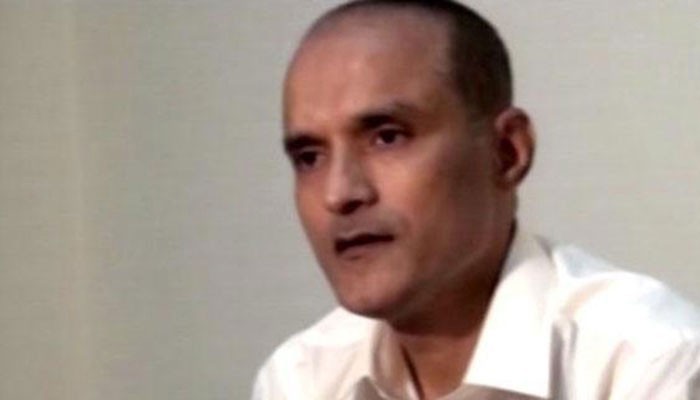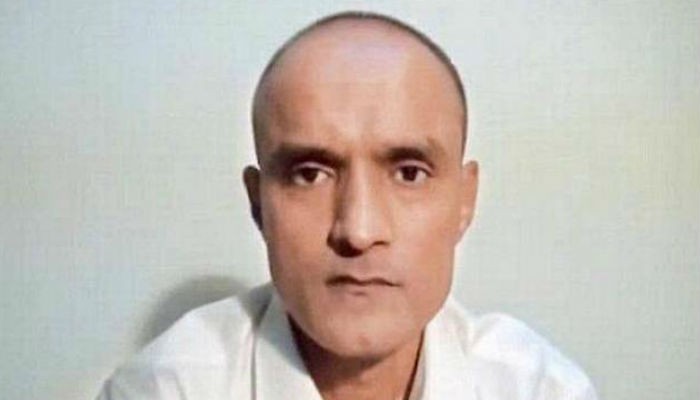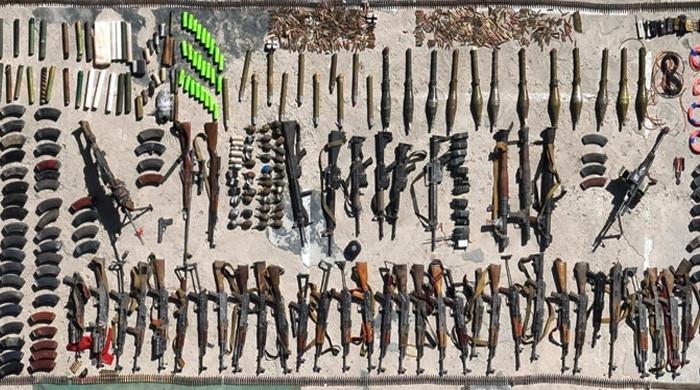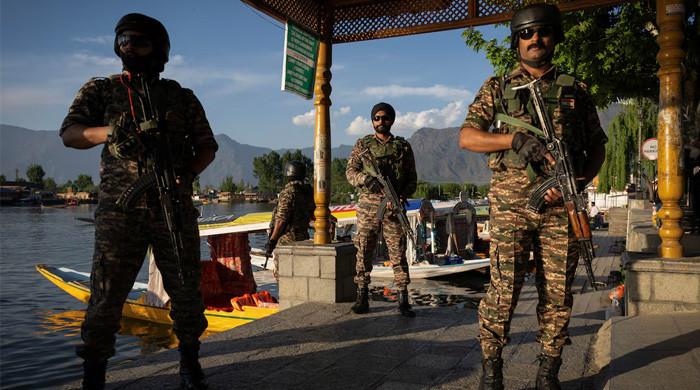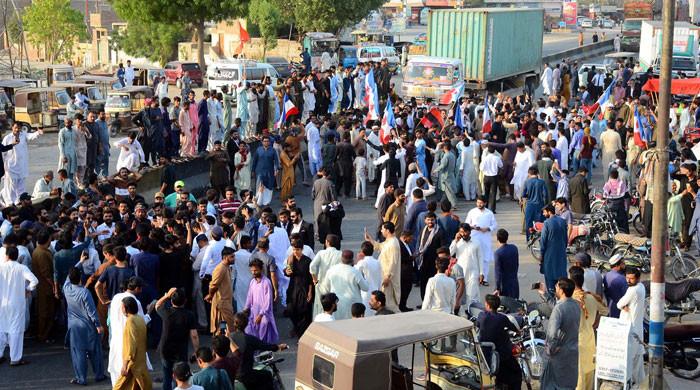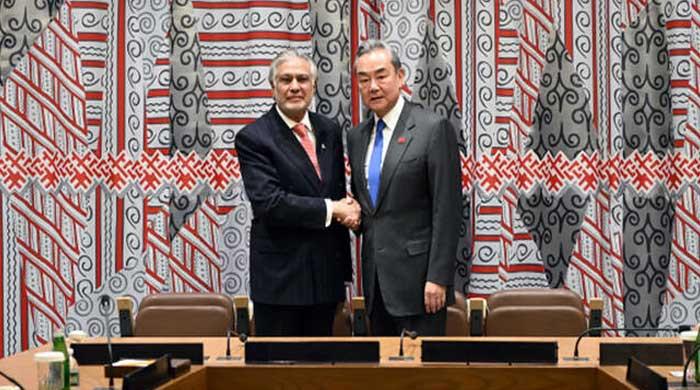Pakistan rejects India's objections in Kulbhushan Jadhav case: diplomatic sources
The 400-page response contains detailed replies to India’s submissions to the ICJ, sources say
July 17, 2018
THE HAGUE: Pakistan on Tuesday rejected India's objections in the case of convicted Indian spy Kulbhushan Jadhav in its reply submitted to the International Court of Justice (ICJ), diplomatic sources informed Geo News.
The reply was submitted by Foreign Office Director India, Dr Fareha Bugti, the sources said. This was the first reply by Pakistan in counter-pleading, and overall the second in the case so far.
Pakistan, in its rejoinder, gave detailed answers to India's submissions to the international court, the sources said, adding that Islamabad also rejected Indian objections in the case.
The reply comprised over 400 pages, they said.
Following Jadhav's arrest and death sentencing by Pakistan in 2016, India had approached the world court to halt his execution.
Dr Bugti had also submitted Pakistan's counter-pleading in December last year. The 400-page reply — a rejoinder to India's last reply — had been prepared by a team of experts led by the attorney general, according to sources.
On April 17 this year, India had submitted its reply to the ICJ after the world court, on January 23, directed India to do so.
India had submitted its pleadings to the ICJ on September 13, 2017. The Indian stance was dismissed by Pakistan in its counter-pleadings, which were submitted on December 13 that year.
In its counter-memorial, Pakistan had stated that Jadhav is not an ordinary person as he had entered the country with the intent of spying and carrying out sabotage activities.
The reply also stated that Jadhav, who was a serving officer of the Indian Navy, does not fall under the purview of the Vienna Convention.
Kulbhushan Jadhav
Commander Jadhav — an on-duty Indian navy officer working for Indian covert agency Research and Analysis Wing (RAW) — was arrested on March 3, 2016, from Balochistan, after he entered into Pakistan from Iran.
Jadhav was tried in a military court which sentenced him to death for espionage and subversive activities.
In a reaction to the move, Pakistan’s relations with neighbouring India tensed, and New Delhi approached the ICJ to hear the case.
India had moved the ICJ to give it six months to file pleadings in the case, which the United Nations’ judicial organ had turned down in June this year.
On May 18, 2017, the ICJ ordered Pakistan to halt the execution of Jadhav until a final decision was made in the proceedings.
"Pakistan shall take all measures at its disposal to ensure that Jadhav is not executed pending the final decision in these proceedings," ordered Judge Ronny Abraham, president of the court, as he announced the decision.
